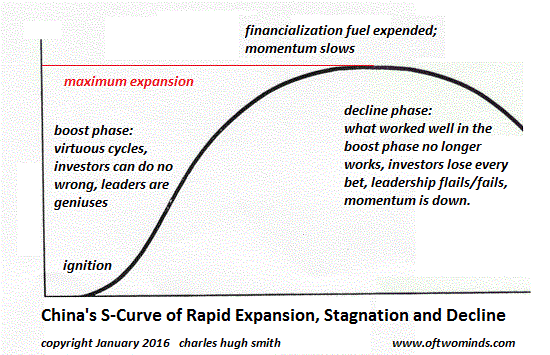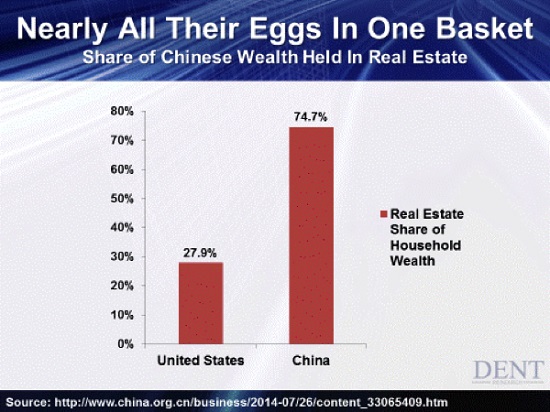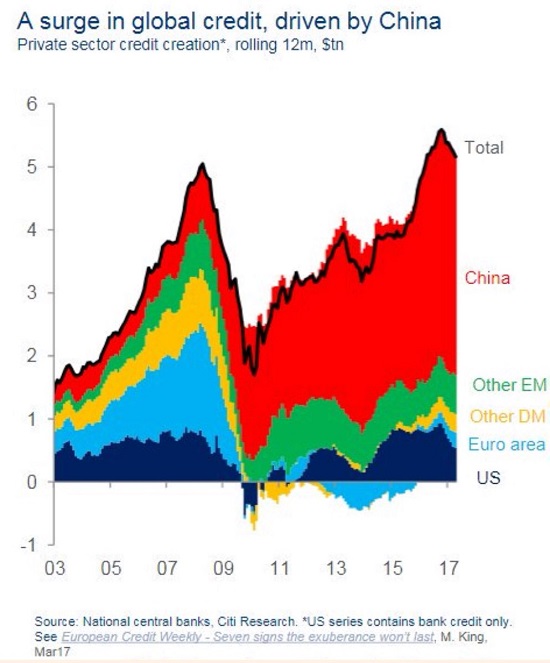The Mandate of Heaven will be withdrawn, and the autocratic regime overthrown.
The absolute confidence that China's political structure is permanent and forever is reminiscent of the absolute confidence in the 1980s that the USSR's political structure was permanent and forever. But the social contract that undergirds the Communist Party's absolute power in China is fast-eroding, and those who understand Chinese history sense the winds of change have shifted and the next revolution in China is already darkening the horizon.
The story starts in the Song Dynasty, which reached its zenith in the mid-1200s.
I've been pondering the excellent 1964 history of the Southern Song Dynasty's capital of Hangzhou, Daily Life in China on the Eve of the Mongol Invasion, 1250-1276 by Jacques Gernet, in light of the Chinese government's unprecedented "Social Credit Score" system, which I wrote about in May 2018: Kafka's Nightmare Emerges: China's "Social Credit Score".
The scope of this surveillance is so broad and pervasive that it borders on science fiction: Inside China’s Dystopian Dreams (NY Times)
China has turned Xinjiang into a police state like no other (The Economist)
In the Song Dynasty, arguably China's high water mark in many ways (before the Mongol conquest changed China's trajectory), social control required very little force. The power of social control rested in the cultural hierarchy of Confucian values: one obeyed the family's patriarch, one's local rulers and ultimately, the Emperor.
Author Edward Luttwak made the distinction between force and power in his fascinating book The Grand Strategy of the Roman Empire: From the First Century CE to the Third: power is persuading people to cooperate, force is making them obey.
Power is people choosing of their own accord to comply, for reasons they find sound and that serves their self-interest; there is little need for the application of force.
Power is highly leveraged; a relatively small police/military and judiciary is all that's needed. Force, in contrast, doesn't scale: it's enormously costly in capital and labor to monitor an entire populace and impose control and obedience.
While the Song Dynasty had a police force, a judiciary and an army, the populace generally managed itself via an internalized secular religion that placed the father, civil authorities and the Imperial state at the top of a natural order that enabled the harmony of Heaven and Earth. To disobey would be to threaten the harmony that served everyone.
In the early days of the Communist revolution (1949 to 1965), the majority of China's populace embraced the values and authority of the Communist regime, despite the hardships and setbacks of the Great Leap Forward (millions dying needlessly of starvation) and other centralized incompetencies.
But the Cultural Revolution that was launched with Mao's blessing in 1966 was only embraced by the youthful Red Guards. The rest of the society had to be monitored and forced to comply with the mercurial injustices and arbitrary nature of the Cultural Revolution, which imprisoned millions of China's most accomplished citizens in various forms of forced deprivation: house arrest (the most mild); forced relocation to rural labor, re-education (i.e. torture) and imprisonment. Many were killed without even the semblance of a judicial process.
In broad brush, the Cultural Revolution broke the power of the Communist Party and the government. Thereafter, the Party and the state only had force at their disposal.
The rise of broadly distributed prosperity (Deng's "to get rich is glorious") replaced the failed power of Communist ideology with a new social contract: obey the party and the state and you'll become prosperous.
If this new contract was rock-solid, why would China's government need the vast surveillance system they're putting in place for fine-grained control of the populace? Clearly, the leadership (Xi and his cabal) are aware that the prosperity is not permanent, nor is it being distributed evenly enough to harmonize Heaven and Earth.
Sensing their lack of social power, they are turning to technology to create a vast system of coercion (force).
Force is not a substitute for power. For this reason, the "Social Credit Score" system smacks of desperation. Xi et al. see the storm clouds on the horizon and are moving quickly to install an autocratic system of Total Information Awareness and Control.
But China's history is clear: the culture and the people prefer a system in which power is maintained through social norms, not force. With Communist ideology a dead force, and prosperity about to wither, what's left? A system of autocratic obedience backed by Orwellian technology and gulags.
The Mandate of Heaven will be withdrawn, and the autocratic regime overthrown. Perhaps the replacement social contract and political structure will still be called "Communist," but it will be a very different social contract and political structure than the current version.
Of related interest:
Forget the Fake Statistics: China Is a Tinderbox (August 10, 2015)



My new mystery The Adventures of the Consulting Philosopher: The Disappearance of Drake is a ridiculously affordable $1.29 (Kindle) or $8.95 (print); read the first chapters for free (PDF)
My book Money and Work Unchained is now $6.95 for the Kindle ebook and $15 for the print edition.
Read the first section for free in PDF format.
If you found value in this content, please join me in seeking solutions by becoming a $1/month patron of my work via patreon.com.
If you found value in this content, please join me in seeking solutions by becoming a $1/month patron of my work via patreon.com.
NOTE: Contributions/subscriptions are acknowledged in the order received. Your name and email remain confidential and will not be given to any other individual, company or agency.
Thank you, Paul C. ($120), for your outrageously generous contribution to this site -- I am greatly honored by your steadfast support and readership.
|
Thank you, Daniel E. ($6), for your most generous contribution to this site -- I am greatly honored by your steadfast support and readership.
|
